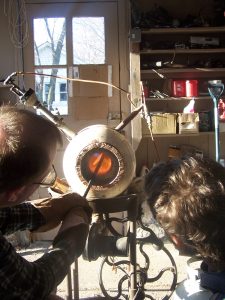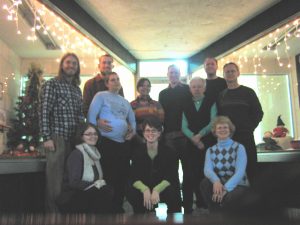These "links for the week" posts are a lame substitute for real blog posts, but I hope you enjoy them anyway. I'm working on some other entries about my experience with "power off day," my preferred task list organization system (it's NOT GTD), the difficulties of personal change in a vacuum, and more on media coverage of energy prices - so stay tuned. But for now:
- Smaller Indiana, a social networking site for Indiana people, with an apparent trend toward IT/design professionals. It's built on Ning, which I'm considering as a platform for a few projects. But mostly I'm just excited to see social networking applied at a more regional/local level - a great trend.
- If you enjoyed Thought to Exist in the Wild, you'll enjoy this bit of satire: San Diego Zoo, Prison Merge. Yeah.
- The Emergency Party Button - oh yes, I will build this some day soon. They even got the music right.
- What You Do Counts - National Geographic selected this film by an Earlham College student as a finalist
- Someone took the time - a lot of time - to create an interesting map of humanity.
- Wired says you can keep your SUV, don't bother paying for organic food, forget about the spotted owl, etc. because reducing carbon emissions is the only real battle that matters. Hmm.


 One of the funniest parts of browsing the Internets is when I come across the funny stock photos of professional people in various professional settings, used by site owners to put a "human face" on their web presence in the most generic way possible. It began with using the headshot of the attentive and waiting customer service representative to show you that "operators are standing by now," and it's just gone crazy from there.
One of the funniest parts of browsing the Internets is when I come across the funny stock photos of professional people in various professional settings, used by site owners to put a "human face" on their web presence in the most generic way possible. It began with using the headshot of the attentive and waiting customer service representative to show you that "operators are standing by now," and it's just gone crazy from there. 



